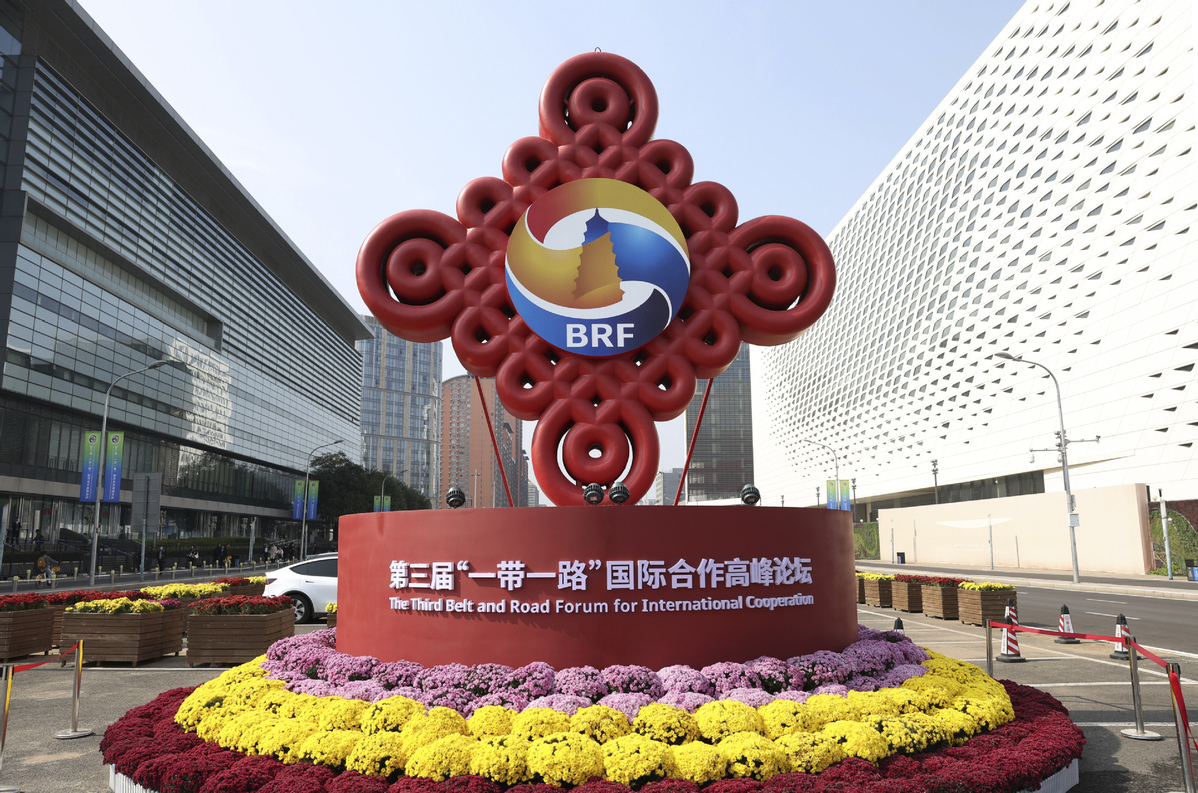Forum serves as catalyst for cooperation






Two-day event addresses connectivity, green development, digital economy
The third Belt and Road Forum for International Cooperation in Beijing and a keynote speech delivered by President Xi Jinping can "infuse new vigor" into promoting multilateral trade, making it a timely event that is much needed amid current global economic development, analysts said.
The two-day forum achieved cooperation initiatives and agreements, including improvements in connectivity, green development and the digital economy, and addressed high-level principles for building integrity within the Belt and Road Initiative, Foreign Minister Wang Yi said at a news conference on Wednesday.
Pavel Lyakhovich, executive director and member of the management board of Russian petrochemical company Sibur, said the Belt and Road forum has the potential to give new vigor to the advancement of multilateral trade and the associated transportation infrastructure that facilitates it.
The BRI plays an important role in fostering job creation and raising living standards in participating countries, while also boosting global commerce, Lyakhovich said.
In his speech, Xi highlighted the BRI's role in the joint pursuit of common development in line with the needs of developing countries and the United Nations Sustainable Development Goals, in order to jointly build a community with a shared future for mankind.
Brian Renwick, a London-based adviser to organizations with a focus on China, said the fact that delegates came from more than 150 countries "points to the interest the BRI generates".
Renwick, who has conducted thorough research on the BRI since 2020, said the initiative is a "wonderful way for China to aid global development and both fund and manage projects that might not be possible otherwise for many years".
Stephen Perry, chairman of Britain's 48 Group Club, said the initiative is transforming the lives of people in countries who have not been able to afford the basic infrastructure to become modern nations.
"China is finding the funds, the drawings, the labor and the technology to transform the basic infrastructure of these countries. No country has ever taken such responsibility to build others and link Asia, Europe and Africa," said Perry.
Evolving process
Denis Simon, a professor and academic administrator in the United States, said the BRI is "an evolving process" that allows China to discover the best way to help developing countries involved in the initiative.
"My sense about the future of the BRI is that it's going to involve what I would call things like the digital road, things like assisting with the internal connectivity within countries, assisting making sure that there's a qualified talent pool, assisting in the improvement of higher education. … These are all the kinds of things that I think are going to become part of the Belt and Road on a more ongoing basis," Simon said.
Stepan Gusamov, CEO of Russia's e-commerce leader Ozon Global, said Russia-China cooperation is critical as these two countries are among the world's leading emerging markets and they complement each other on several levels — from cooperation in the energy sector to technology and large-scale logistics projects.
Oleg Timofeev, an associate professor at the Peoples' Friendship University of Russia, said the BRI forum was hosted amid growing global turbulence. He said that unlike the US, which has established military blocs like AUKUS, China is determined to promote the Belt and Road Initiative, which has already gained support from the vast majority of nations.
Prime Sarmiento in Hong Kong contributed to this story.
Contact the writers at [email protected]





























